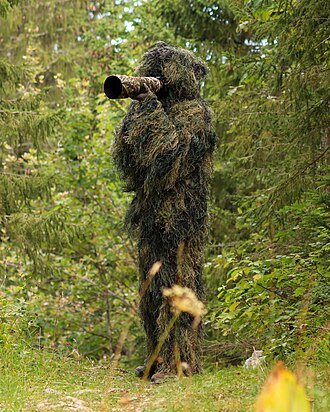|
Wildlife photographer in a ghillie suit. Some wild animals are very difficult to approach without disturbing them, which sometimes leads some wildlife photographers to wear a ghillie suit when they go in search of them. By remaining undetected, wildlife photographers can observe animal behaviour that would otherwise not be observable if the animal would have had knowledge of human presence.)
|


